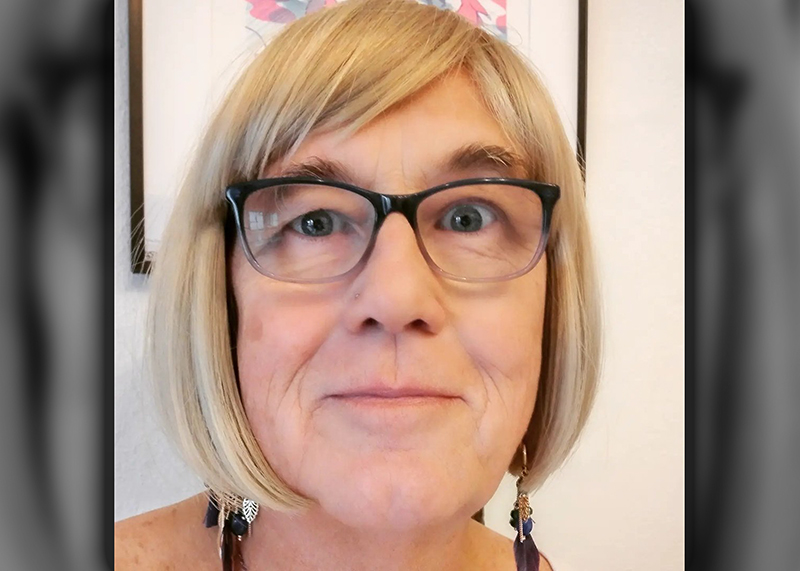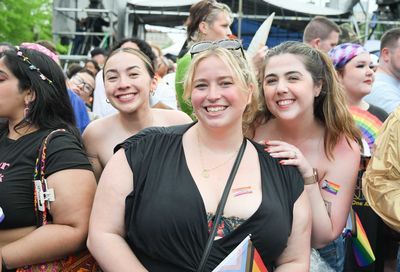Chicago suburb to repeal law prohibiting people from wearing “opposite-sex” clothing
1963 law classifies dressing in clothing that doesn't match your assigned sex at birth a form of "indecent exposure."

Lawmakers in a Chicago suburb plan to repeal an outdated provision in local law prohibiting people from wearing clothing that does not match their assigned sex at birth.
The Des Plaines City Council has announced it will take up a proposal to repeal a provision of the City Code governing what is termed “obscene and immoral acts.” Under the section of the code prohibiting “indecent exposure,” it is illegal for a person to appear in any public place “in a dress not belonging to his sex.”
The law, which has been on the books since 1963, conflates dressing in clothing that does not match one’s assigned sex at birth as equivalent to appearing nude in public, wearing overly revealing clothing, exposing one’s private parts, or the private parts of another, or conducting themselves “in a lewd and lascivious manner.”
As an example of how strictly the city code punishes any so-called “deviant” behavior, one section treats “sing[ing] any lewd or obscene song, ballad or other words” as the equivalent of urinating, defecating, or performing sex acts in public.
The proposal before the city council would strike language about gender-specific clothing from the ordinance altogether. It will also change a reference to exposing male genitalia in a different part of the code to the gender-neutral term “their,” and will change part of the name of the section of the code from “immoral” to “indecent.”
Attorney and Elk Grove Village resident Jim Naughton first brought the problematic provision to light after conducting a review of suburban municipal codes and discovering that his hometown, the city of Schaumburg, and Des Plains all had similar provisions aimed at discouraging cross-dressing or gender nonconformity. Elk Grove Village dropped its rule last month, and Schaumburg followed suit earlier this week.
The ordinances in the Chicago suburbs are examples of outdated or rarely-enforced laws prohibiting certain types of conduct. In the 19th century, a wave of cities and states passed laws to ban cross-dressing, and police were empowered to arrest transgender, drag performers, or gender-nonconforming people who did not wear a sufficient number of articles of clothing matching their assigned sex at birth, well into the 20th century.
While the ordinances do not explicitly mention members of the LGBTQ community, in practice, those are the communities who are targeted if law enforcement or local officials choose to enforce the law.
See also: Transgender veteran says Illinois is denying her unemployment benefits due to name change
On the evening of Monday, Aug. 2, the City Council is expected to take up the proposed repeal as part of its consent agenda, meaning there will be no public discussion on the issue and the repeal could be approved with eight unrelated measures in a single vote.
Des Plains Mayor Andrew Goczkowski expects the repeal to pass without controversy.
“The existing language is a relic from a different and less accepting time,” Goczkowski told the Daily Herald. “When it was brought to our attention, it was obvious that it needed to be updated.”
He added the fact that the repeal was placed on the council’s consent agenda “speaks to how welcoming the community is.”
See also:
Appeals court rejects anti-LGBTQ group’s lawsuit challenging “hate group” label
Jamie Lee Curtis reveals she has a trans daughter — and will officiate her wedding
Democratic donor Ed Buck found guilty in deaths of Black men at his West Hollywood home
Support Metro Weekly’s Journalism
These are challenging times for news organizations. And yet it’s crucial we stay active and provide vital resources and information to both our local readers and the world. So won’t you please take a moment and consider supporting Metro Weekly with a membership? For as little as $5 a month, you can help ensure Metro Weekly magazine and MetroWeekly.com remain free, viable resources as we provide the best, most diverse, culturally-resonant LGBTQ coverage in both the D.C. region and around the world. Memberships come with exclusive perks and discounts, your own personal digital delivery of each week’s magazine (and an archive), access to our Member's Lounge when it launches this fall, and exclusive members-only items like Metro Weekly Membership Mugs and Tote Bags! Check out all our membership levels here and please join us today!





























You must be logged in to post a comment.